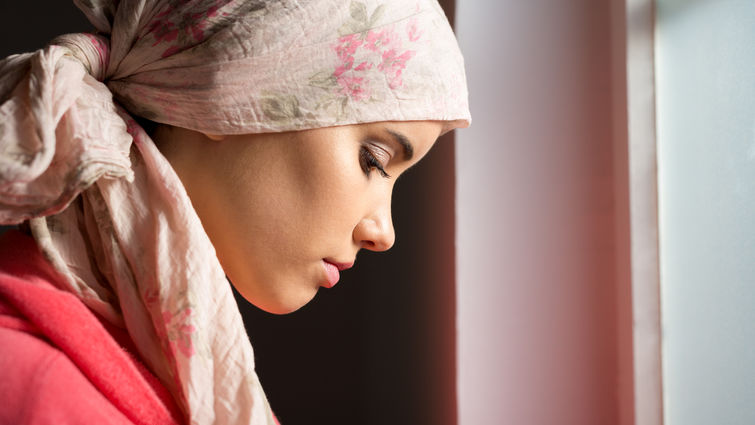
Cancer patients face a distinctive challenge: reconciling pandemic safety measures like physical distancing with the social bonding activities crucial to their psychological well-being. For many, enacting precautionary measures associated with the coronavirus elicit feelings of social isolation, compounding the already difficult reality of living with cancer.
Laura Castracane, LCSW, OSW-C, a clinical social worker at Loma Linda University Cancer Center, is trained in psycho-oncology and holds therapy sessions with patients, nowadays mostly via the online Zoom platform. Because immunocompromised cancer patients are at higher risk of serious illness from infection, she says many express anxieties about leaving home and exposing themselves. Such protective measures, on the other hand, often exacerbate feelings of isolation and loneliness.
From diagnosis to treatment and survivorship, burdensome cancer journeys make meaningful interpersonal relationships and physical presence of loved ones all the more integral to people’s well-being, Castracane says.
“When battling cancer, it’s the interactions with loved ones like family, friends, and members of the community that really bolster you,” she says. “Many possibilities for the social connections so important to cancer patients have been compromised because of COVID-19.”
Nearly half of respondents in a survey by the American Cancer Society reported that their experience as a cancer survivor during COVID-19 is affecting their mental or emotional welfare. Alarmingly high rates of stress, depression, and anxiety among cancer patients during COVID-19 were found to not only exceed the rates recorded pre-pandemic times, but also match rates of noncancer patients with post-traumatic stress disorder, a study reported.
Castracane says quarantine and social isolation take a toll on patients dealing with cancer, many of whom struggle with the inability to mingle in-person with support systems, like church gatherings or cancer support groups. She says she has noticed an uptick in cancer patients’ need for psychological support since February, a phenomenon reported by other clinicians and researchers around the world.
While it calls for intentionality and careful coordination, it is possible for people living with cancer to practice social distancing without feeling like they are socially isolating themselves, Castracane says. Some of her patients successfully connect with loved ones without putting themselves at risk by planning outdoor, distanced coffee sessions or syncing up grocery delivery volunteer shifts with friends.
Taking the opportunities to message, phone call, or video chat with members of one’s support system prove effective means for staving off the sense of isolation associated with COVID-19 physical distancing measures, Castracane says. Other healthcare experts’ recommendations reinforce Castracane’s guidance — a psychiatrist advises about managing the impacts of social distancing and an oncology therapist imparts tips tailored to those coping with cancer during COVID-19.
Taking active steps to parse physical distancing from isolation can make all the difference in your life and in the lives of loved ones who have been touched by cancer. To learn more about all of the resources offered to patients at LLU Cancer Center, visit lluh.org/cancer-center or call 1-800-782-2623.
